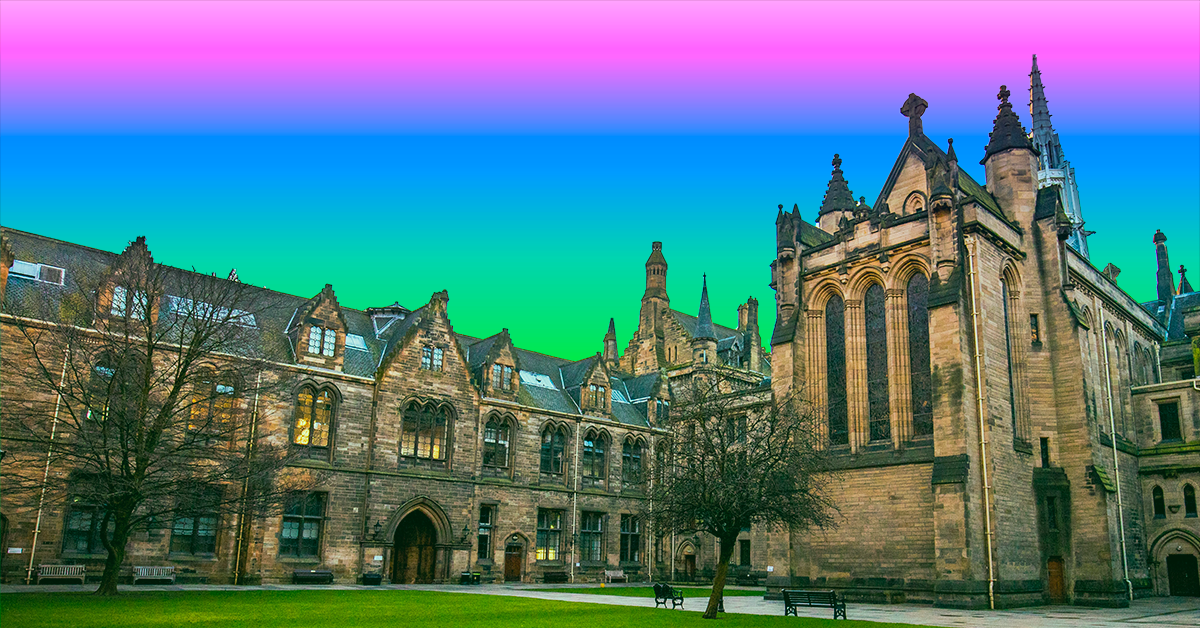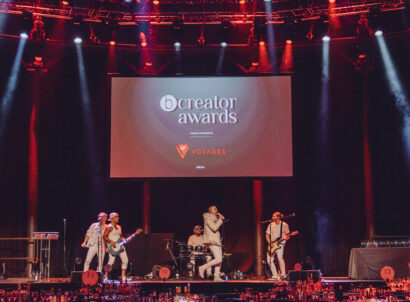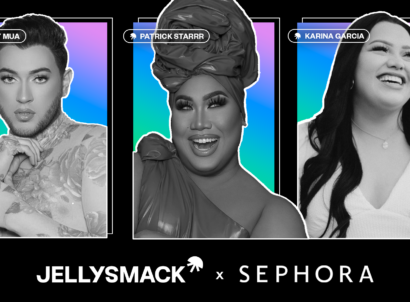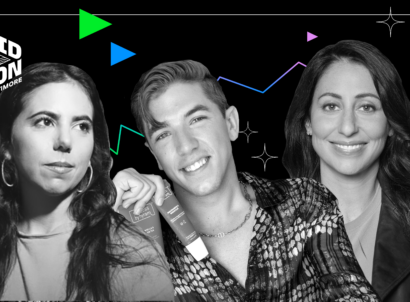As we all know, the creator economy is no longer an up-and-coming career choice or a niche space only reserved for select parts of the internet.
Influencers and content creators are now part of wider culture, and with 54% of young Americans interested in becoming a content creator, education is catching up to cultural trends.
With this increased demand for careers in the influencer industry, we’re seeing an abundance of educational tech companies that offer hands-on classes tailored to any topic of interest. And while it can take years to design, approve and run courses at a university level, we’re finally seeing the debut of creator economy classes on university campuses across the U.S.
Here are some notable milestones making the creator economy an in-demand educational emphasis both in school and online.
The Creator Economy Goes Mainstream
With enrollment in higher education dropping since 2012 and more access to affordable course options through MOOCs (massive open online courses), students in the U.S. have the ability to learn about the creator economy, social media, and content creation through more affordable online options. Studying content creation from a popular influencer is more accessible than ever before, and universities have taken note.
It’s estimated that 65% of today’s elementary school children will work jobs that don’t yet exist, and for colleges to remain an effective stepping stone to a sustainable career, they have to stay ahead of the curve. Content creation is becoming a more and more popular choice among younger generations seeking more flexibility and purpose in their work. The bulk of today’s creators use their online and social media presence to supplement their income and a smaller chunk of creators have made it their full-time job (shout out to our incredible Jellysmack creator partners).
By offering courses that cater to the millions of aspiring content creators, U.S. colleges can capitalize on students looking to invest in their career as an influencer.
Fierce Competition
With two-thirds of Americans reporting they regret getting their undergraduate degree and student loan debt ballooning into a crisis, it’s easy to see why online classes are a more appealing option than a traditional university program.
While MOOCs and course platforms like Skillshare, Udemy, and Thinkific are popular, cohort-based classes are a new way for course creators and online educators to connect with students. Taking advantage of limited class sizes and a high level of collaboration between students, live cohorts have become a common way for creators to monetize their audience and for aspiring creators to learn from an expert.
Being taught by a creator working in the field certainly has appeal. Learning how to navigate the current job market in real time is one of the primary advantages of taking courses from an individual content creator. In TechCrunch’s coverage of the intersection of education and the creator economy, the mantra that “you don’t need to be an expert teacher, just an expert” has given creators like Mark Tan the confidence to launch their own cohort-based classes that are independent of traditional educational institutions. With a sliding scale of commitments that range from live workshops and feedback sessions to office hours and guest speakers, ed-tech provided by individual creators is taking up a huge chunk of online course offerings.
Jellysmack creator partner Nas Daily launched Nas Academy course platform in 2021, offering creators a space to instruct students on building a creator-centric business, MasterClass style. (If you missed their Nas Summit in Dubai, here’s a recap.) These specialized course offerings, also taught by creators on platforms like Skillshare, have advantages over traditional education:
- Specific course topics allow students to fill in knowledge gaps without having to pay for extensive, time-intensive programs.
- Online courses on the creator economy can move faster because of a lack of red tape. This means that classes will be more recent, relevant, and actionable, while university courses and textbooks may already be out of date by the time they’ve been approved.
- Students get to learn from top performers with practical experience and apply their learnings to real-world situations.
With the benefits of ed-tech courses, there’s no wonder universities are jumping on the bandwagon in order to compete.
Duke University Leans Into Creator Classes
Even educational institutions are getting in on the creator course trend. Duke University recently launched its undergraduate course, Building Global Audiences, colloquially known as the “TikTok class.” Taught by professor Aaron Dinin, who teaches under the Innovation & Entrepreneurship Institute umbrella at Duke, the course is more than just analysis. The semester-long curriculum includes research on effective TikTok techniques, filming and artistry, negotiation tactics, and business guidance. The creator economy class gives students the tools they need to accelerate their personal online growth.
Since joining the class, Natalia Hauser, a sophomore at the time of publication, has made up to $5,000 for a single TikTok post. She found the class gave her the insight she needed to price her services with confidence and negotiate with brands, one of the practical aspects of ed-tech courses that make them such an alluring alternative.
Higher education might be competing with the ed-tech industry more in recent years, but there are still advantages to pursuing creator economy classes through traditional institutions:
- While red tape might keep programs from moving quickly, it’s there for a reason. University courses have to meet certain requirements and regulations, meaning your accreditation must meet professional standards within your industry.
- Getting an undergraduate degree can provide a helpful fallback. Many content creators don’t work full time or eventually suffer from creator burnout, and an undergraduate degree or traditional certification can help graduates secure other work opportunities..
The ed-tech space is providing creators with new self-employment opportunities and students with credentials, but it hasn’t beat out higher education completely.
The Evolution of Entrepreneurship
With the importance of building a personal brand online becoming more and more prominent across the professional landscape, the attention that educational platforms and institutions are giving to the creator economy is significant.
While some students in Duke’s “TikTok class” have leveraged their social media presence to get jobs and internships, other creators have used their online audience as a springboard to launch a business of their own.
- Uber-famous YouTuber Emma Chamberlain, who was recently named Gen-Z’s favorite influencer, piggybacked off her vlogger success to start her own beverage brand, Chamberlain Coffee.
- Iconic beauty creator and Jellysmack partner Patrick Starrr leaned into his starrrdom to launch ONE/SIZE makeup, sold online and at Sephora.
- The King of YouTube, MrBeast (also a Jellysmack creator partner), has started several businesses including MrBeast Burger, his own production company, and now better-for-you snack and chocolate brand Feastables.
- Katie Steckly, a YouTuber since her teenage years, launched her own digital marketing agency, Creatorly Media.
Studying the creator economy isn’t just for influencers anymore. As the field has grown, creators have become the new entrepreneurs. The opportunities for jobs within the creator ecosphere have skyrocketed, and understanding the power of “Like and Subscribe” culture is no longer a luxury, it’s a necessity. Carving out a brand within the creator economy is an essential part of building a business online.
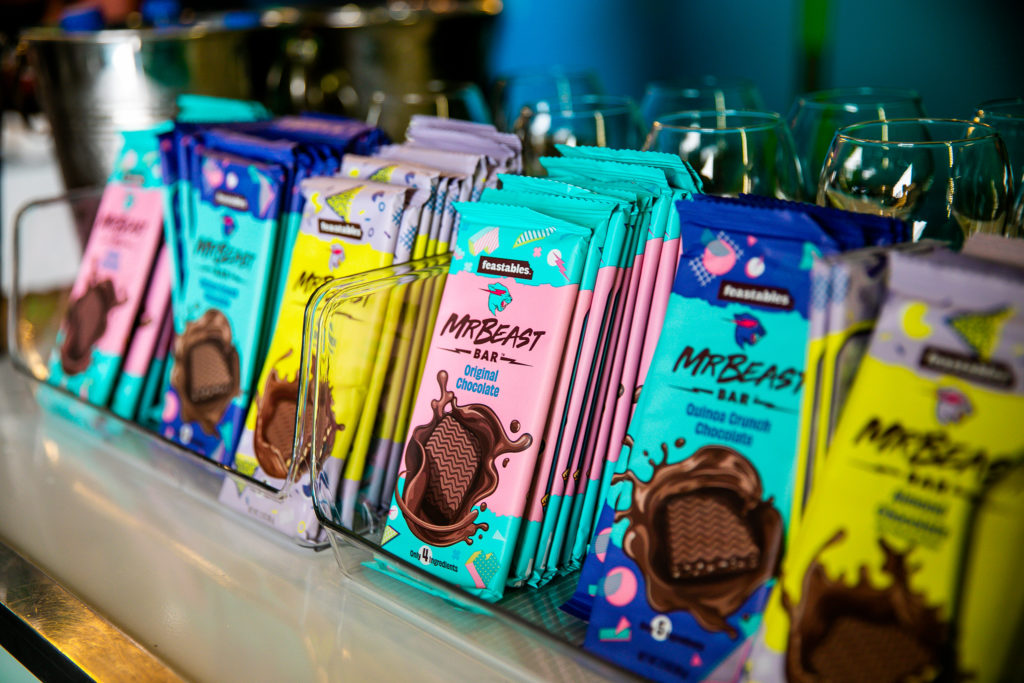
You’ve Been Schooled
With over 50 million independent contractors classified as creators, the creator economy clearly isn’t going anywhere. But if you want to join the new movement of today’s entrepreneurs? Be prepared to put in the time and do your homework.

